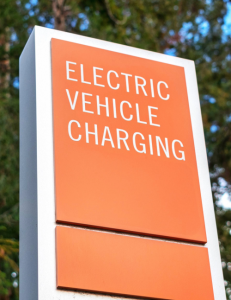
Updated Electric Vehicle Mandates Leave California Hotels Scrambling for Charging Solutions
New Infrastructure Alternatives Emerges to Meet Rising Demands of USA’s Hotels Electric Vehicle Requirements.
SAN FRANCISCO, CA, UNITED STATES, June 27, 2025 /EINPresswire.com/ -- It has been one year since updates to the California Green Building Standards Code (CALGreen Title 24) were released on July 1, 2024. Last year's update requires new hotels to equip 50% of parking lots with EV charging infrastructure. However, given the time these development projects take, we have yet to witness the full impact of these stringent new electric vehicle (EV) infrastructure mandates. The updates specifically require new hotels and motels to equip 40% of parking spaces with EV-ready infrastructure, using either standard outlets or Level 2 chargers, and provide Level 2 chargers for the remaining 10% of parking spaces. Further increases anticipated in 2026 add significant urgency for developers and hotel operators looking to stay competitive in EV hotspots.Consumer trends strongly support these mandates. In regions such as Santa Clara County, EV adoption rates have surpassed 40%. With the growing popularity of electric vehicles, guest expectations for accessible, reliable EV charging options are becoming critical, influencing hotel selection and satisfaction.
A recently opened hotel near Sacramento’s Exposition Blvd, permitted under the older 2019 code, underscores a regulatory gap. Despite its 180 rooms, this property provides only 12 EV charging spots, far fewer than the roughly 90 spaces mandated under current 2024 standards. In a recent email thread city building officials recognize this gap between previously approved projects and current EV requirements, emphasizing urgency for hotels planning new developments to quickly align with updated regulations.
Meeting these requirements with current popular solutions, such as what is recommended by flagship brands introduces substantial financial and logistical burdens astraditional Level 2 chargers typically cost between $3,000 and $4,000 per port. Besides significant upfront expenses, these charging stations require ongoing maintenance, including cable replacements and inspections. Maintenance issues can negatively affect guest experiences, creating dissatisfaction hotels strive to avoid.
To mitigate these challenges, hotels are exploring Alternative EV Supply Equipment (Alternative EVSE). This category includes smart outlets enabling guests to utilize personal portable chargers. These solutions significantly reduce costs, simplify installation, and minimize maintenance. Despite clear advantages, smart outlets face regulatory hurdles from California’s Department of Food and Agriculture’s Division of Measurement Standards (CDFA-DMS). Without certification allowing resale of metered electricity, adoption remains limited, creating substantial barriers to implementation.
San Jose-based startup Evolve Energy is developing smart outlet-based EV charging technology tailored specifically for the hospitality sector. The company plans to initiate a pilot project in summer 2025, aiming to refine its solution into a fully compliant, scalable product suited to hospitality operators' unique needs. To accelerate development and address the existing technology gap in hospitality EV charging infrastructure, Evolve Energy anticipates raising a funding round in late summer 2025.California’s building codes provide flexibility, allowing hotels to substitute five Level 2 chargers with one Level 3 charger. However, Level 3 chargers, costing 20 to 30 times more than Level 2 chargers, rarely align with typical overnight guest charging behaviors. Thus, practical application remains limited, emphasizing the need for scalable, economically feasible charging options.
Hilton’s recent industry trends report highlights the pressing nature of EV infrastructure demands. Competition and market dynamics further illustrate this importance. A JD Power survey found 19% of hotel guests actively seek EV charging availability, significantly influencing booking decisions. Currently, 30% of U.S. hotels provide EV charging: approximately 90% of luxury hotels, 58% of full-service hotels, and just 20% of limited-service properties. Hotels offering EV infrastructure report increased guest loyalty and new revenue streams tied to charger availability, pressuring those without EV chargers to quickly adapt or risk losing competitiveness.
As California accelerates its electrification agenda, hospitality providers must swiftly adapt. The challenge is no longer deciding whether to provide EV infrastructure but how to implement solutions affordably, effectively, and without negatively impacting guest experiences. Travelers should anticipate increased availability of alternative solutions such as smart EV outlets in hotel parking facilities and pack their mobile chargers for convenience.
USA News
Neuworldz
email us here
Distribution channels: Banking, Finance & Investment Industry, Business & Economy, Energy Industry, Real Estate & Property Management, Travel & Tourism Industry
Legal Disclaimer:
EIN Presswire provides this news content "as is" without warranty of any kind. We do not accept any responsibility or liability for the accuracy, content, images, videos, licenses, completeness, legality, or reliability of the information contained in this article. If you have any complaints or copyright issues related to this article, kindly contact the author above.
Submit your press release

